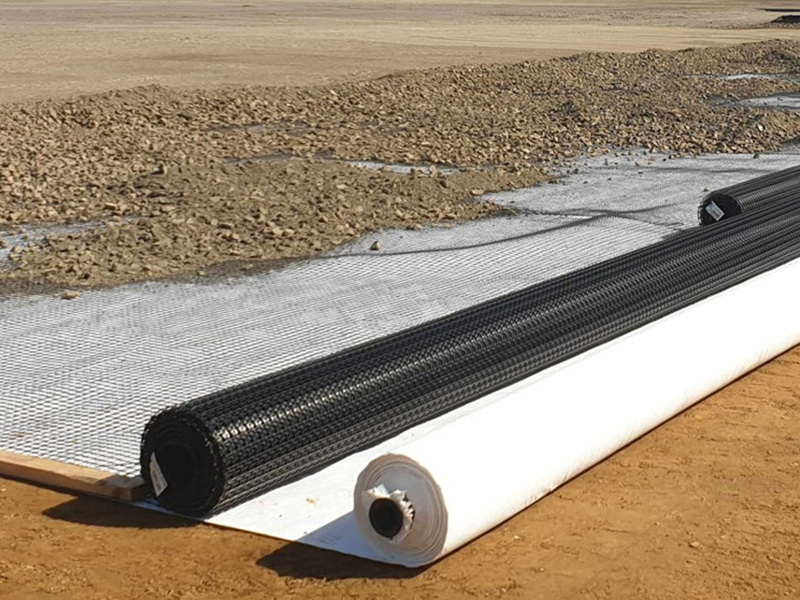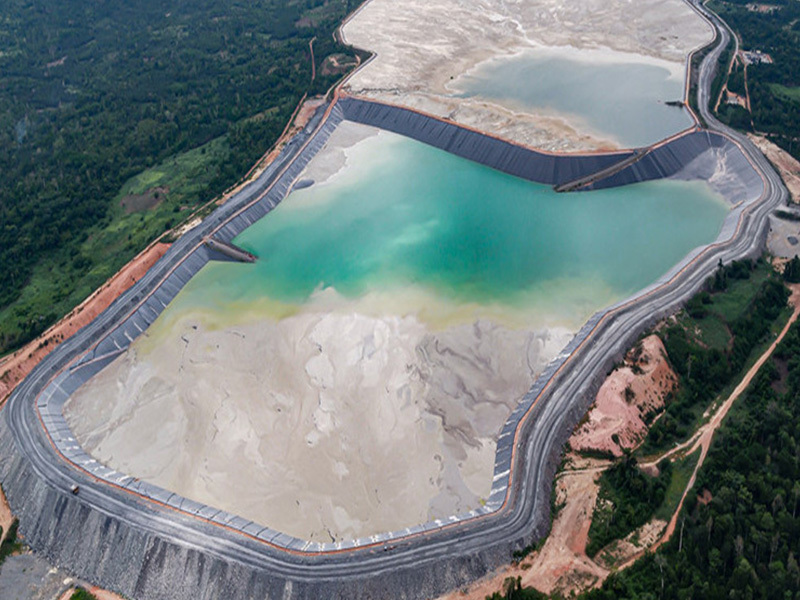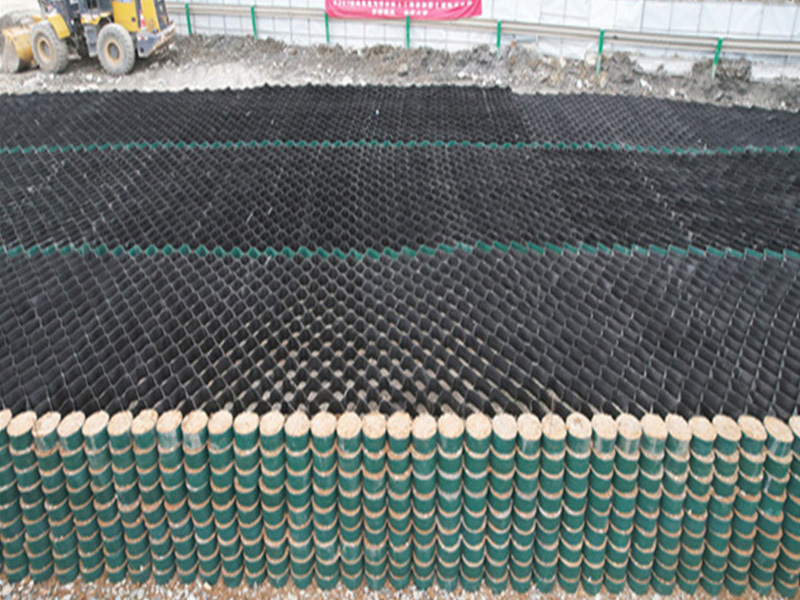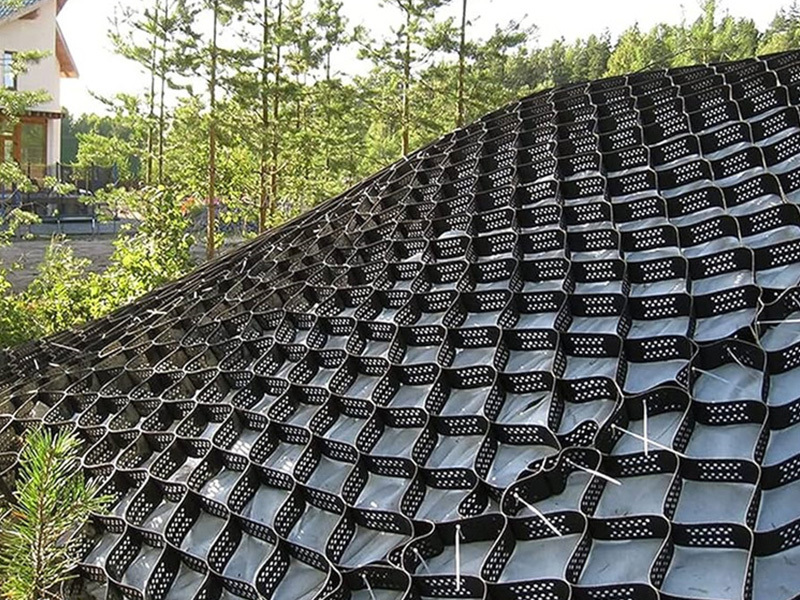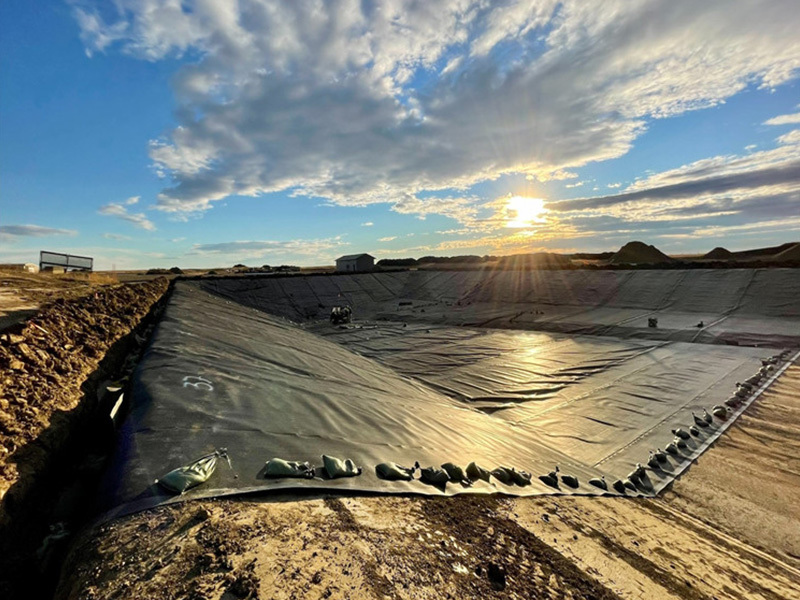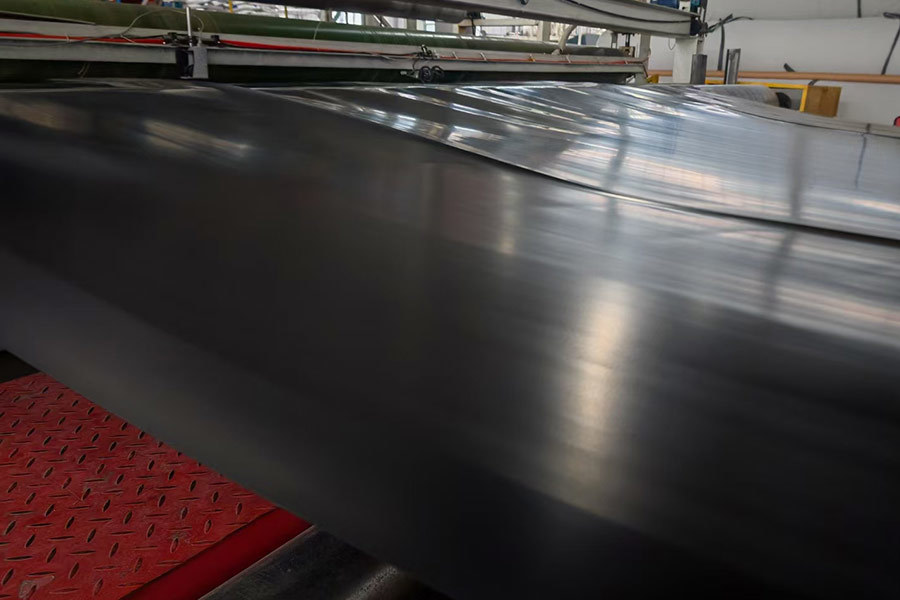Geotextile Dam Anti-Seepage Construction
Release time:
Nov 21,2023
Key Steps in Geocell Retaining Wall Construction
Key Construction Steps:
Base Preparation – Clean and level the dam surface, removing sharp objects and loose soil.
Geotextile Laying – Roll out the geotextile (geomembrane or composite liner) with overlaps (typically 30–50 cm) to ensure continuity.
Seam Welding/Sealing – Use thermal fusion, adhesive, or solvent welding to seal overlaps for a watertight barrier.
Anchoring – Secure edges in trenches or with ballast to prevent displacement.
Protective Layer – Cover with a layer of soil, gravel, or concrete to shield against UV and mechanical damage.
Quality Inspection – Conduct leak detection (e.g., electrical or vacuum testing) and repair defects.
Materials Used:
Geomembrane (HDPE, LDPE, or PVC) for impermeability.
Nonwoven Geotextile as a cushion/protective layer.
Drainage Geocomposites (optional) to relieve water pressure.
Advantages:
High Impermeability – Prevents water leakage effectively.
Durability – Resists chemical corrosion and punctures.
Cost-Efficiency – Lower labor and material costs vs. traditional methods.
Applications:
Embankment dams, reservoirs, tailings ponds, and canal linings.
Need further details on standards (e.g., ASTM) or design considerations?
Next
Next
News
Geocell Technology for Slope Protection: Mechanisms and Applications
Geocell Technology for Slope Protection
HDPE Geomembrane Waterproofing Construction for Reservoirs
Waterproofing Construction for Reservoirs


